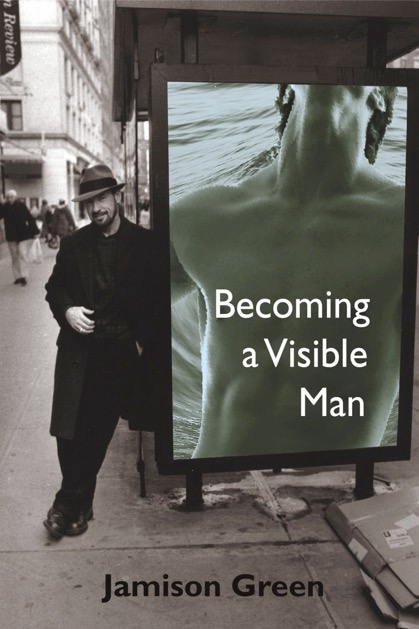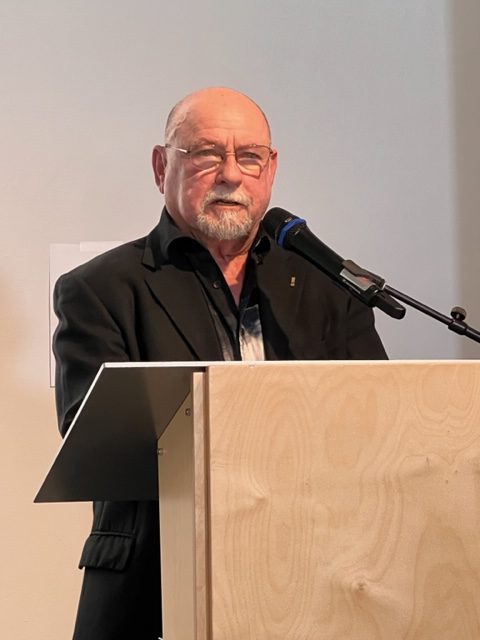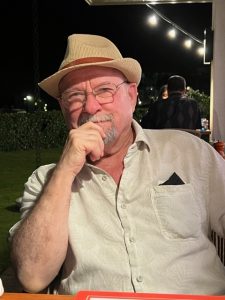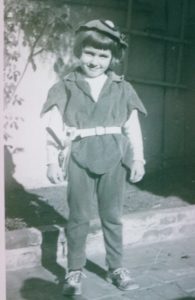Tell Shelley Anne – An Interview With Jamison Green

Jamison Green is an award-winning author, activist, and advocate for transgender people. Born in Oakland, CA, in 1948, he earned an M.F.A. in creative writing in 1972 at the University of Oregon (where he also earned his B.A. in English), and enjoyed a career spanning construction, legal and medical writing, technical writing, and managing artists, writers, engineering change control, and corporate operation functions for design and manufacturing and financial transaction processing companies. He transitioned from female to male in 1988 and led nonprofit organizations like FTM International and the World Professional Association for Transgender Health. He earned a Ph.D in law in 2011. His work has spanned creating nondiscrimination ordinances, laws, and policies around the world, and eliminating exclusions for transition-related care in healthcare policies, collaborating with a wide array of advocacy groups, and mentoring scores of younger transgender people. His publications are equally wide-ranging in subject matter. His best-known book is Becoming a Visible Man (2020/2004), is available in print and on Audible. He lives in the Pacific Northwest.
TGForum: Being a trans man in the ‘80s was a lot different than it is today. Your thoughts.
Mr. Jamison: Trans men in the ‘80s were invisible, and we still are, only to a slightly lesser extent. However, resources for trans men today are much more accessible, and our community is growing. The Internet made a huge difference, but really only after the turn of the century, because the majority of trans men could not afford computers before that time.
 TGForum: What triggered the lifestyle change? From female to male in 1988 was somewhat risky.
TGForum: What triggered the lifestyle change? From female to male in 1988 was somewhat risky.
Mr. Jamison: I actually didn’t change my lifestyle at all. As soon as I was old enough to dress myself, I always wore masculine clothing (whenever possible – girls were not allowed to wear pants to school until after I had graduated high school), and people always had a hard time discerning whether I was male or female. Even when I was very young–age six or seven–and even when I was wearing a dress, adults and sometimes other kids would ask me if I was a boy or a girl. When I was in the fourth grade, my voice was lower than the boys in my class, so they all wanted to trade voices with me! Once I figured out that it was possible to change my sex medically and legally, it was easy for me because I was already 90% of the way there and I was lucky enough to have a good job that paid well, so I could afford to pay for what I needed. The surgery was not that expensive then, and most trans guys only want top surgery to begin with. Genital reconstruction was much more limited in 1988, and I opted for the least invasive procedure. Other guys who wanted the more complex lower surgeries had more complications and had to pay a lot more. Now that medical plans cover more complex procedures for many of us, and more surgeons who can perform these procedures are available, it may be more common for trans men to get lower surgery these days.
TG Forum: Studies have consistently reported a greater prevalence of MTF than FTM. Have you found that to be true?
Mr. Jamison: No. This speaks to the invisibility of trans men. One of the issues that concerns the anti-trans movement is that girls are self-identifying as trans at significantly higher rates than boys. Yet nobody wants to know how trans men feel about their own transitions.
TGForum: The fact that you were from the San Francisco-East Bay area made your transition a little easier due to the acceptance and size of the surrounding community?
Mr. Jamison: In the 1980s, even people in the San Francisco Bay Area thought they were the only trans person in the world. In fact, all through the 1990s, I would frequently hear from people who said they didn’t know there were support groups for people like themselves. Until the Internet had more reliable information for trans people, and more people had computers available to them, people have remained isolated well into the 21st Century. because they are afraid or ashamed of their difference. At the same time, there have always been trans support groups scattered across the country, mostly in the vicinity of metropolitan hubs, but you would be amazed how many people put themselves out there to run support groups when they figure out there’s a need and they realize they can do something to help others.
 TGForum: How did your family react? Were they supportive?
TGForum: How did your family react? Were they supportive?
Mr. Jamison: My brother was, but my mother was mortified and angry. I had changed my name to Jamison (Jamie for short in those days) when I was 14, though I didn’t tell my parents until I went away to college at 17. They were good about the name change at that time, but 22 years later when I told my mother I was going to start a medical transition, she was furious, and reverted to calling me by the very feminine name they had given me as if she could stop my transition with her force of will. Unfortunately, my father had died the year before I decided to take the plunge, and I think he could have helped my mom understand and cope with it. He and I had a good relationship, and I think he understood me. I know he would have been shocked and afraid for me at first, but I think he would have accepted my transition a lot more easily than my mother did. She only lived another seven years, and she spent five of those years pretending that I wasn’t who I am and being ashamed of me and angry and distant. That was hard for me, but I kept showing up and talking to her as much as she would let me, and eventually she referred to me as her son and started using my real (chosen) name again.
TGForum: It’s my understanding you have been a trans community rights activist since the early days of your transition. What’s your role and involvement today?
Mr. Jamison: I’m still very much involved in healthcare research, I co-chair WPATH‘s Ethics Committee, I’m on the boards of two new organizations, Gender Research Advisory Council + Education (GRACE), and The Intentional Man Project. I still consult with organizations on strategic matters, and I sometimes serve as an expert witness in employment discrimination litigation (in support of trans employees). And I’m still writing and publishing research papers, personal essays, stories (short fiction), and opinion pieces, plus I’m working on a novel.
TGForum: Did you always fashion yourself as a writer which resulted in a plethora of articles and ultimately your book, Becoming a Visible Man?
Mr. Jamison: Yes, I wanted to be a writer from a very young age. When I was a kid, most of the books my parents had on their shelves didn’t have photos of the authors, so I figured being a writer would be cool because you didn’t have to tell people whether you were a boy or a girl. I loved the way words on a page could reach into your emotions and make you feel and think about so many different people, places, and things. I wanted to be able to write stories that would inspire people, or make them feel something, let them learn about people who were different from them. Plus, when you’re a writer, everything is an adventure, everything might lead to a story, everything is teaching you something about yourself and about the world. It meant that every experience I had was valuable and could be translated into a story, maybe not right at that moment, but later.
TGForum: Are you often asked to provide advice to women who want to be men?
Mr. Jamison: Women who were curious about what it would be like to transition asked me a lot of questions back in the 1990s, but not so much anymore because the conversation has changed around trans identity. It’s much easier to get support for being non-binary, avoiding a medical transition, which is a perfectly viable way to be, I think. A medical transition is not for everyone.
 TGForum: Please accept my birthday wishes and reaching a milestone 75. What does your birthday celebration look like and consist of?
TGForum: Please accept my birthday wishes and reaching a milestone 75. What does your birthday celebration look like and consist of?
Mr. Jamison: I plan a quiet evening at home with my wife and a couple of friends, then dinner with my children on the weekend. I’m pretty low key around my birthday, but I’m pretty excited to be turning 75.
TGForum: I appreciate you doing this interview with me on short notice. You’re off to Camp Lost Boys. Is that as the name implies?
Mr. Jamison: Camp Lost Boys is a camping experience, especially for trans men (over 21) who never had the chance to have an all-male wilderness experience when they were young. It’s one of the lost boyhood experiences we often wish we had if we were unable to transition at younger ages. Campers range in age from 21 to 75, and If I could get some even older guys to come, they would be welcome, too. We do intergenerational work there, connecting the young guys to the elders, and it helps bridge the ageism problems that exist in our culture. It isn’t a really rugged wilderness experience; there are bunk houses and meals are prepared for us, so it isn’t really roughing it, but for guys who have never been camping or out in the woods at all, or never in an all-male setting that was supportive and inclusive, it’s a powerful experience. There are workshops, structured conversations, and activities every day. It’s very relaxing and nurturing for me.
Related
Category: Interview






